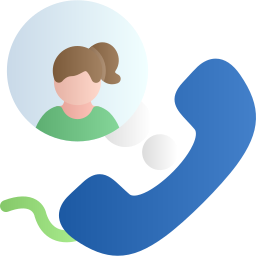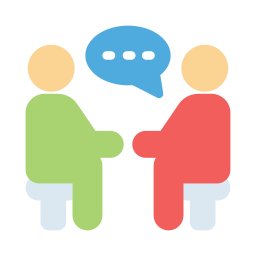We know every person in Campbelltown deserves to be heard. Our NDIS speech therapy is all about helping you build clearer communication, understand language with ease, and feel safe at mealtimes. You don’t have to fit into anyone’s template—we shape therapy around your strengths, challenges, and daily routines.
When you start with us, we take time to understand how you communicate—whether that’s speaking, signing, gestures, or using a device. We listen first, then work with you to set practical goals that matter in everyday life. Our support covers everything from practicing speech sounds and building new words, to using communication tools or feeling more comfortable while eating and drinking.
You’re never alone on the journey. We involve your family, carers, and support workers so everyone feels confident using therapy strategies at home and out in the community. Our plans always adapt to your progress and changing needs, with regular reviews and open conversations.
If you’re self-managed or plan-managed, we guide you every step of the way—from your first enquiry through to ongoing sessions. We’ll explain how NDIS funding works, answer your questions, and make starting therapy easy and welcoming.
We work with people of all ages across Campbelltown, Camden, Liverpool, and nearby suburbs. Whether you’re hoping to find your first words, communicate with a device, or eat safely without worry, our experienced team is here to help you thrive.

When you choose our NDIS speech therapy in Campbelltown, you’ll find support that meets you where you are. We help you build clearer speech, understand spoken language, and use the right tools for communication, so you can connect with others in a way that feels natural and comfortable.
We support people who use or need alternative ways to communicate. This includes AAC tools like speech devices, communication boards, visual schedules, or key word sign. We help choose the right tool, set it up, and make sure you and your support team know how to use it effectively. Whether it’s a simple visual system or a high-tech device, the goal is the same—giving you a reliable way to express needs, thoughts, and choices.
We help you move beyond single words to build longer phrases and sentences. If vocabulary is limited or it’s hard to structure a message, we work on growing your word bank and building fluency. This could involve stories, games, or real-life conversations. Over time, you’ll be able to share ideas more clearly and take part in more meaningful interactions.
Stuttering can affect the flow of speech, leading to repetition or blocks that make talking harder. We support people of all ages with fluency difficulties by teaching techniques that reduce tension and improve pacing. You’ll also learn ways to manage speaking in stressful situations. The goal is not just smoother speech—it’s feeling more confident while speaking.
Speech therapy also supports safe eating. If chewing, swallowing, or managing textures is hard, we can help. We assess swallowing safety, adjust food or drink textures, and suggest strategies that make mealtimes safer and more comfortable. We also work with families and support workers so that everyone knows how to help during meals.

You don’t need a referral or diagnosis to contact us. Just call, email, or use our website form to tell us what kind of support you’re looking for. We’ll listen to your situation, explain how speech therapy fits into your NDIS plan, and answer any questions about services, costs, or timelines.

Once we hear from you, we’ll set up a time to talk—either by phone or in person. This conversation helps us understand how communication or swallowing challenges affect your daily life. You can share what’s working, what’s hard, and where you’d like support. If you’re managing a plan for someone else, we’ll guide you through the process and make sure you feel supported too.

After we agree on the service plan, we’ll match you with a speech therapist who fits your needs. Sessions are delivered where it makes sense—at home or another everyday setting. You’ll work together on skills like clearer speech, understanding language, using a device, or improving mealtime safety. We review progress regularly and adjust the therapy plan based on what’s helping most.
Speech therapy sessions vary based on age, needs, and goals. For children, sessions often involve games, books, or activities that encourage speaking, listening, or interaction. Adults may focus on conversation practice, speech exercises, or AAC device use. Sessions may target specific goals like improving articulation, building sentence length, or managing swallowing. Therapists also model strategies for families and support staff so gains from therapy carry over into daily life.
We assess, trial, and recommend communication devices when speech is not reliable or consistent. AAC (Augmentative and Alternative Communication) tools may include visual boards, speech-generating devices, tablets with custom apps, or low-tech solutions like picture cards. We help match the tool to the person’s abilities, preferences, and daily communication needs. We also provide setup, training, and education for the person and their support team so the device becomes part of everyday life—not just a therapy tool.
We regularly support children who are late to talk, use limited vocabulary, or struggle with sentence formation. Therapy focuses on building strong communication foundations through play, routines, and interaction. Early support can improve school readiness, behaviour, and participation. We also work with families and educators to reinforce communication strategies at home and in early learning settings.
We work with people who use Augmentative and Alternative Communication (AAC) methods including speech devices, communication boards, picture systems, or key word signing. Our therapists help identify the most suitable tool, provide training for the participant and their support team, and integrate the system into everyday use.
We provide communication and swallowing assessments that support therapy planning, progress reviews, and NDIS funding requirements. Our reports are clear and focused on what matters—how the person functions day to day, where support is needed, and how therapy is helping. We avoid jargon and keep information easy to read so it can be used by families, coordinators, and the NDIA. Reports can support funding requests for speech therapy or assistive technology and are available on request.
We start by understanding your current strengths and challenges—whether that’s difficulty forming sounds, understanding instructions, or managing mealtime safety. Therapy plans are built around your daily routine, goals, and how you best learn. We use tools, activities, and strategies that match your communication style and needs. Support is flexible and updated regularly based on your progress and what’s working in real-life situations.

